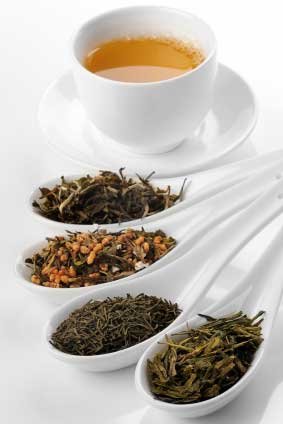Green Tea

Green tea is a variety of tea from the leaves of Camellia sinensis plant. Unlike oolong or black tea, green tea leaves have not been crushed or fermented, but are withered and steamed.
This has allowed the leaves to avoid the high levels of oxidation that occurs during the normal course of processing black and oolong teas. Consumed throughout the years in many parts of Asia, traditional cultures knew that green tea was an excellent stimulant, blood-pressure regulator, diuretic, wound healer, and heart protector.
Green tea does contain caffeine. If you are sensitive to caffeine, you may experience restlessness, irritability, sleeping problems, heart palpitations, gastric irritation, nausea and frequent urination. Green tea may also reduce the absorption of iron and thiamine (
More on this topic is coming soon.
